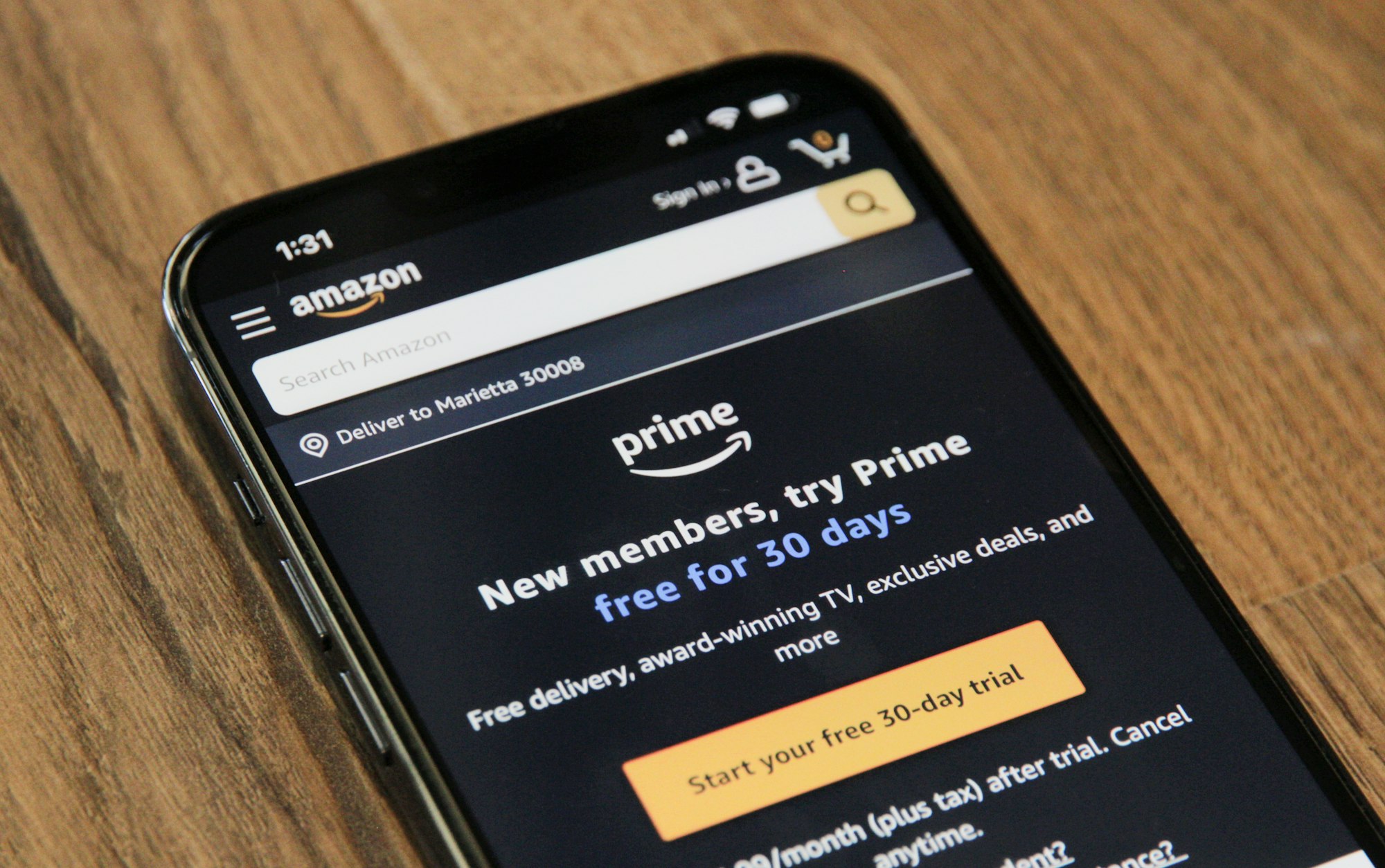Understanding the dark world of subscription billing fraud and how to protect yourself
Bottom Line Up Front: Subscription scams have evolved into a sophisticated $2.8 billion industry that traps millions of consumers through deceptive free trials, impossible cancellation processes, and hidden fees. With Americans now paying an average of $219 monthly for subscriptions they think cost only $86, these scams exploit the subscription economy’s rapid growth through psychological manipulation and deliberately complex systems designed to maximize revenue while minimizing cancellations.
Buried Clauses in Terms of Service and EULAs: What You Need to KnowIn the digital age, we regularly encounter Terms of Service (ToS) and End User License Agreements (EULAs) when signing up for online services, downloading software, or purchasing digital products. These documents, often filled with dense legal language, outline the terms and conditions under which users agree to use a product Compliance Hub WikiCompliance Hub
Compliance Hub WikiCompliance Hub
The subscription economy has exploded from $2 trillion in 2023 to $3 trillion in 2024, fundamentally changing how we consume everything from entertainment to software. But lurking beneath this convenience-driven revolution is a darker reality: a European Commission study revealed that around 10% of consumers in the EU had been lured into an unwanted subscription in 2020, while a November 2023 survey of 2,033 adults in the UK conducted by consumer organization Which? revealed that 1 in 10 participants discovered unexpected recurring payments in their accounts.
This isn’t just about forgotten Netflix subscriptions. We’re dealing with a sophisticated network of scammers who have weaponized the subscription model to drain billions from unsuspecting consumers through what experts call “scamscriptions” – fraudulent or misleading subscriptions that charge users without their genuine knowledge or informed consent.
The Anatomy of Subscription Fraud
The Free Trial Trap
The offer seems too good to be true. Free samples or trial periods might end abruptly, triggering sudden or hidden fees. Fine print is buried or misleading. This is the entry point for most subscription scams, and it’s devastatingly effective.
Here’s how it typically works:
The Hook: You see an ad for a “free” trial of a product – maybe a weight loss supplement, skincare cream, or software tool. All you need to do is pay a small shipping fee of $4.95.
The Hidden Catch: Buried in microscopic text or hidden behind multiple click-throughs, the company discloses that you’re actually agreeing to a monthly subscription that could cost $50-$100 or more.
The Billing Surprise: Even if you think you have a free trial window, some services start charging immediately. Consumers often discover they’ve been billed for products they never received or services they never used.
The Cancellation Nightmare
Perhaps the most insidious aspect of subscription scams is the deliberately impossible cancellation process. According to Which?, one of the biggest complaints is the difficulty or downright impossibility of canceling once you’ve enrolled. Confusing phone menus, unresponsive emails, or nonexistent contact info can keep you locked in.
Common Cancellation Obstacles Include:
- Hidden Contact Information: Companies bury customer service numbers deep in their websites or provide fake contact details- Endless Phone Menus: Automated systems that loop customers in circles without reaching a human- Fake Email Addresses: Customer service emails that bounce back or never receive responses- Restrictive Cancellation Windows: Requiring cancellation exactly 30 days before billing, but only accepting calls on specific days- “Retention Specialists”: Representatives trained to confuse, delay, or refuse cancellation requests
The Dark Patterns
Modern subscription scams employ sophisticated psychological manipulation techniques known as “dark patterns” – user interface designs deliberately crafted to trick consumers into actions they wouldn’t otherwise take.
Examples of Dark Patterns:
- Pre-checked boxes that enroll users in additional services- Confusing button layouts where “Cancel” looks like “Continue”- Making the “free trial” button more prominent than disclosure text- Using urgent language like “Limited Time!” to pressure quick decisions- Requiring credit cards for “verification” on truly free services
The Staggering Financial Impact
The numbers tell a sobering story about subscription fraud’s impact on American consumers:
- The FTC received fraud reports from 2.6 million consumers last year, nearly the same amount as 2023- Consumers reported losing more money to investment scams—$5.7 billion—than any other category in 2024- American adults lost $47 billion to identity fraud and scams in 2024, an increase of $4 billion over 2023
But the subscription-specific data is equally alarming. Over 87% of consumers made use of streaming services in 2024, with 50% paying for subscriptions, and research shows consumers dramatically underestimate their subscription spending.
The Reality Gap: A 2024 C+R Research study found consumers believe they spend about $86 per month on subscriptions, but the actual amount is closer to $219 – a gap of approximately $133 monthly that often includes forgotten or unwanted services.
Who Gets Hit Hardest?
Younger people lost money more often. People aged 20-29 reported losing money more often than people 70+. But when older adults lost money, they lost far more than any other age group. This creates a two-pronged problem:
- Young Adults: More frequently targeted and victimized, often through social media and app-based scams- Seniors: Lose significantly more money per incident, making them high-value targets for sophisticated schemes
Common Types of Subscription Scams
1. Fleeceware Apps
Fleeceware apps. These are mobile applications that, while not malicious in code, charge exorbitant subscription fees for basic functionalities. They often lure users with free trials that transition into costly subscriptions if not canceled promptly.
Real Example: In one instance, a victim unknowingly agreed to pay $19 a month for a simple flashlight app.
These apps appear on legitimate app stores like Google Play and the Apple App Store, giving them an air of credibility. They typically offer basic functions like QR code scanning, flashlights, or simple utilities – things your phone can already do for free.
2. Mystery Box Scams
The “mystery box” scam has evolved and now includes almost hidden recurring payments, alongside links to websites to various shops. These scams often use social media platforms, particularly Facebook, to target consumers with the promise of surprise packages at incredibly low prices.
The psychology is clever: consumers see an enticing mystery box for just a few dollars, but hidden in the purchase process is a subscription for monthly shipments at much higher prices.
3. Health and Beauty Trial Scams
Among the most prevalent subscription scams, these typically involve:
- Skincare products promising dramatic results- Weight loss supplements with “revolutionary” formulas- Anti-aging creams endorsed by fake celebrities- Fitness programs with “secret” methods
The scam follows a predictable pattern: offer a free trial requiring only shipping costs, then begin charging $50-100+ monthly for continued shipments.
4. Software and Service Scams
- Fake antivirus software that requires monthly payments- Credit monitoring services that automatically renew at inflated rates- VPN services that claim to be free but require credit cards- Dating app “premium” features with confusing billing cycles
The Legal Landscape: Your Rights and Protections
Federal Protections: ROSCA and Beyond
The primary federal law protecting consumers from subscription scams is the Restore Online Shoppers’ Confidence Act (ROSCA), enacted in 2010. Under ROSCA, it is unlawful to bill a consumer on an automatic renewal via the Internet unless you: Provide “clear and conspicuous” disclosures of renewal terms before obtaining billing information, including price.
ROSCA Requirements for Businesses:
- Clear Disclosure: All material terms must be clearly and conspicuously disclosed before obtaining billing information2. Express Consent: Companies must obtain explicit, informed consent before charging consumers3. Simple Cancellation: Businesses must provide easy mechanisms for consumers to cancel recurring charges
ROSCA Enforcement: ROSCA, which governs online negative options sales, allows the FTC to pursue civil penalties amounting up to up to $43,792 per violation. The FTC has been aggressively enforcing ROSCA, with recent high-profile cases against companies like Adobe and Amazon.
State-Level Protections
Many states have enacted their own automatic renewal laws (ARLs) that often provide stronger protections than federal law:
California’s Enhanced ARL: Amendments to California’s Automatic Renewal Law took effect on July 1, 2022. In addition to existing requirements, businesses now must provide a notice before a trial period ends that tells the consumer the term will automatically renew and how to cancel.
Key State Law Features:
- Pre-cancellation notifications for trial periods- Mandatory “click to cancel” functionality- Stricter disclosure requirements- Enhanced penalties for violations
The FTC’s “Click to Cancel” Rule
In 2024, the FTC implemented new rules that essentially supersede ROSCA’s cancellation requirements, mandating that companies make cancellation as easy as enrollment.
How to Fight Back: A Comprehensive Defense Strategy
1. Prevention: Your First Line of Defense
Before Signing Up for Any Trial:
- Closely examine the Fine Print. Before agreeing to a “free trial” or special deal, carefully read the subscription terms. Watch out for contradictory or confusing language about charges and renewal dates- Research the Company: Check for negative reviews. Before entering your details or subscribing for a free trial, check for any negative reviews online- Use Virtual Credit Cards: Use a virtual/limited-use credit cards. Many banks offer disposable or virtual card numbers for online transactions
Red Flags to Watch For:
- Offers that seem too good to be true- Requests for credit cards for “verification” only- Missing or confusing cancellation policies- High-pressure sales tactics with countdown timers- Poor website quality or numerous spelling errors- No physical address or legitimate contact information
2. Monitoring: Stay Vigilant
Financial Monitoring:
- Review statements regularly. Make it a habit to scan through your bank or credit card statements. Look for small, recurring transactions from unfamiliar companies- Set Calendar Alerts: Set calendar alerts. Mark the end date of any trial period so you’re reminded to cancel before charges begin—this is especially crucial for software services or short-term product trials
Use Subscription Management Tools:
- Rocket Money: Automatically identifies subscriptions and can cancel many with one click- Monarch Money: Provides comprehensive subscription tracking with calendar views- Capital One’s Built-in Tools: Capital One is the first major credit card issuer in the U.S. to offer these subscription management tools to its customers, at no additional cost and conveniently located within the Capital One Mobile app
3. When You’re Already Trapped: Escape Strategies
Immediate Actions:
- Document Everything: Save emails, take screenshots, record call times and representative names2. Attempt Official Cancellation: Try canceling through the company’s listed channels. Document every interaction—keep emails, take screenshots, and note down call times3. Contact Your Bank: Contact your bank or credit card provider. If your cancellation request is ignored, or if you continue to be charged, ask your bank to block future charges or help you file a chargeback
Escalation Steps:
- File Complaints: Report to the FTC at ReportFraud.ftc.gov2. Contact State Authorities: Many state attorneys general have consumer protection divisions3. Dispute with Credit Card Company: Use chargeback rights for unauthorized charges4. Consider Legal Action: Small claims court for larger amounts or class action lawsuits
4. Advanced Protection Strategies
Financial Barriers:
- Use prepaid cards for trials with limited amounts- Set up dedicated “trial” accounts with low limits- Use payment services that allow easy blocking of merchants
Technical Protections:
- Use email aliases for trial signups to track communication- Install ad blockers to reduce exposure to scam ads- Be cautious of social media advertisements- Use browser privacy settings to limit tracking
The Best Subscription Management Tools for 2025
Free Options
1. Subscription Stopper (Android)
- Completely free subscription tracker- User community for sharing cancellation tips- Basic but effective interface
2. Empower Personal Finance
- Free financial overview with custom tagging- Manual subscription tracking- No automatic cancellation features
Premium Solutions
1. Rocket Money
- Cost: $4-12/month premium, free basic version- Features: Automatic subscription detection, one-click cancellation for many services, bill negotiation- Best For: Users who want comprehensive cancellation assistance
2. Monarch Money
- Cost: $10/month or $100 annually- Features: Calendar view of upcoming bills, automatic recurring expense detection, comprehensive financial planning- Best For: Users wanting full financial management beyond just subscriptions
3. Capital One Mobile App Tools
- Cost: Free for Capital One cardholders- Features: Built-in subscription management, direct cancellation capabilities, spending insights- Best For: Capital One customers seeking integrated tools
Bank-Specific Solutions
Many banks now offer built-in subscription management:
- Chase: Subscription alerts and spending categories- Bank of America: Recurring payment notifications- Wells Fargo: Transaction categorization and alerts
Legal Remedies and Consumer Rights
Federal Consumer Rights
Under ROSCA, you have the right to:
- Clear disclosure of all subscription terms before billing- Express consent requirements for recurring charges- Simple cancellation mechanisms- Protection from unauthorized third-party charges
State Consumer Rights
State laws often provide additional protections:
- Automatic cancellation for certain types of contracts- Cooling-off periods for some subscription types- Enhanced disclosure requirements- Private rights of action for violations
How to Exercise Your Rights
Filing Complaints:
- FTC: Submit reports at ReportFraud.ftc.gov2. State Attorney General: Most states have online complaint forms3. Better Business Bureau: Can help mediate disputes4. Consumer Financial Protection Bureau: For financial service subscriptions
Legal Action Options:
- Small Claims Court: For amounts under state limits (typically $5,000-$10,000)- Class Action Lawsuits: Join existing lawsuits against repeat offenders- Private Attorney: For larger losses or complex cases
Industry Response and Future Outlook
Corporate Accountability Measures
The subscription industry is slowly responding to consumer pressure and regulatory scrutiny:
Positive Changes:
- Clearer cancellation processes from major companies- Better disclosure practices- Industry self-regulation initiatives- Enhanced customer service training
Ongoing Challenges:
- New scam techniques emerging faster than regulations- International scammers operating beyond U.S. law reach- Technology enabling more sophisticated deception
Regulatory Evolution
Recent FTC Actions:
- The FTC alleges that Adobe and company executives violated ROSCA by failing to clearly and conspicuously disclose the material terms of APM subscription transactions- Increased penalties for ROSCA violations- Enhanced focus on “dark patterns” in user interfaces
Future Regulatory Trends:
- Stricter enforcement of existing laws- Potential federal “click to cancel” requirements- Enhanced penalties for repeat offenders- International cooperation on cross-border scams
Conclusion: Taking Back Control
The subscription scam maze is real, sophisticated, and costly. With consumers losing billions annually to deceptive practices, understanding these schemes and your rights is no longer optional – it’s essential financial literacy.
Key Takeaways:
- Stay Alert: The gap between perceived and actual subscription spending ($86 vs $219 monthly) shows how easy it is to lose track2. Use Tools: Subscription management apps can automatically detect and help cancel unwanted services3. Know Your Rights: ROSCA and state laws provide powerful protections when enforced4. Document Everything: Detailed records are crucial for disputes and complaints5. Act Fast: The sooner you address subscription issues, the more money you can recover
The subscription economy isn’t going anywhere, but neither should deceptive practices that exploit consumers. By staying informed, using available tools, and exercising your legal rights, you can navigate the subscription maze without falling into costly traps.
Remember: if a subscription offer seems too good to be true, it probably is. When in doubt, walk away – your financial security is worth more than any “deal” that requires immediate action or your credit card information for “verification.”
For immediate help with subscription scams, contact the FTC at ReportFraud.ftc.gov or call the AARP Fraud Watch Network Helpline at 877-908-3360 for free guidance and support.
